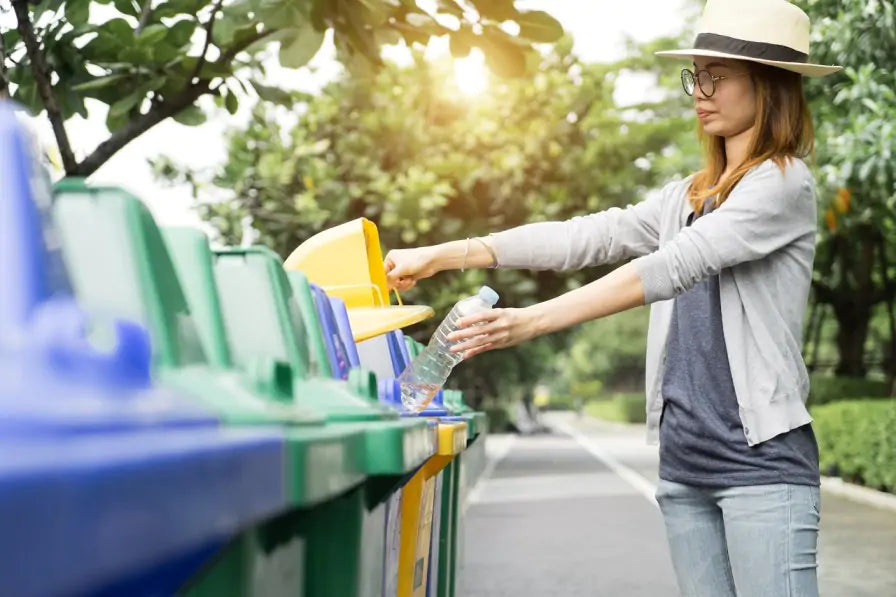OR
Express Checkout

When you throw away your rubbish and recycled materials into bins that are provided for you, you may not comprehend where those items will travel to after they have been tipped into dustbin lorries. Of course, it must end up somewhere, but may be something that we just never think of during our day to day lives.
Rubbish goes through a whole cycle!
Firstly, our litter bins within our homes become extremely full, so we take the contents to our wheelie bin outside and dump the entire contents. The bin men then come and empty the wheelie bin into their lorry, which is then taken to either:
What happens to rubbish from your black wheelie bin?
Household waste is tipped into a collection vehicle, which is then squashed and transferred to a landfill site. Then, it may be sent to incinerators, however most of the rubbish that you throw away will never ever decompose and is left to rot.

Images courtesy of WRAP UK
What happens to our recyclables?
Most of our recycled materials can be sold off to companies who are able to make new products, who are located in the UK and Europe.
Plastic:
Households use approximately 373 plastic bottles each year, yet less than 10% are recycled. That is quite a shocking figure. In fact, plastic is a hard material to recycle due to the amount of different types that are available. Plastics are then sorted again, even after you have done so within your own sections of the recycling process. Once they have been categorised, they are re-used to make new products such as traffic cones, toys and even drain pipes.
Paper:
57 per cent of paper is recycled within the UK and is perhaps one of the easiest materials to recycle. Once paper has been
used, it is remade into new paper and this pattern continues. Any waste paper should never be dumped into landfill, but always put into recycling bins.
Cans:
A whopping 5 billion aluminium cans are used in the UK every single year, however nearly two-thirds of that figure are littered. It is one of the best materials to recycle as no matter how many times it is recycled, it will never lose its original quality. This then saves 95% of energy that would initially be used to create one in the first place. Keep recycling your cans. Although it might be easier to dump them on the floor…think again and do your bit for the environment!
Glass:
A fact about glass that you may never have been aware of is that once it has been recycled, it can reduce carbon dioxide emissions. Green glass cannot be mixed with other coloured glass, therefore is often used in building work and other manufacturing industries. Clear and brown glass is recycled to make brand new glass bottles.
What happens if we don’t use bins correctly?
Unfortunately if litter pollutes areas, it can be extremely harmful to wildlife and animals. We may only think of the short term; that our litter will lie there until it decomposes, but that is just not the case. It will eventually have a damaging effect on nature in some format and we must try and prevent that from happening if we can all chip in and do our bit.
If you would like any further information on recycling or purchasing your own recycling bins for the home, office, school, hospitals or any other location, please visit our website at litterbins.co.uk or call us on 01684 252212.